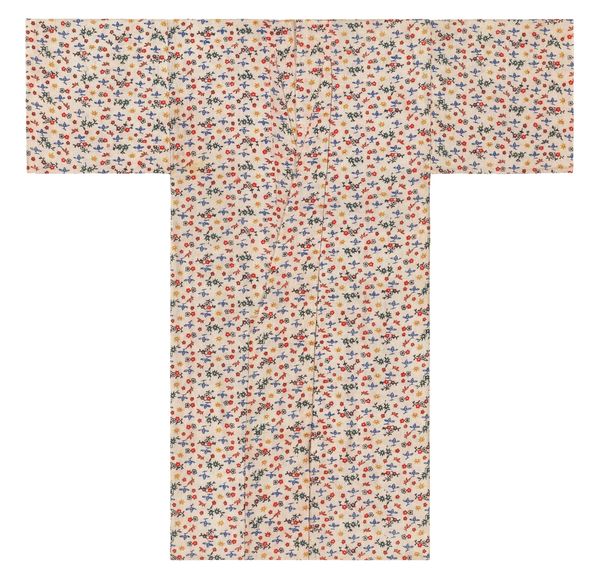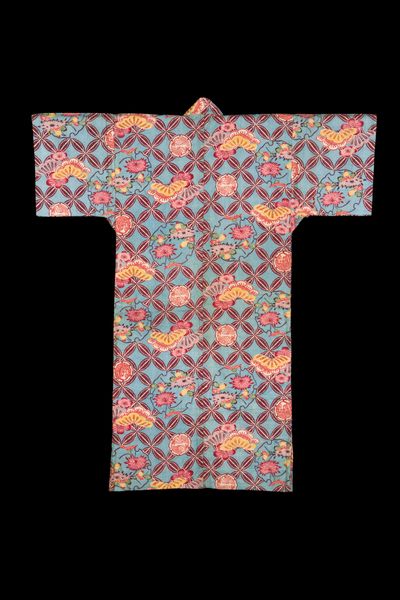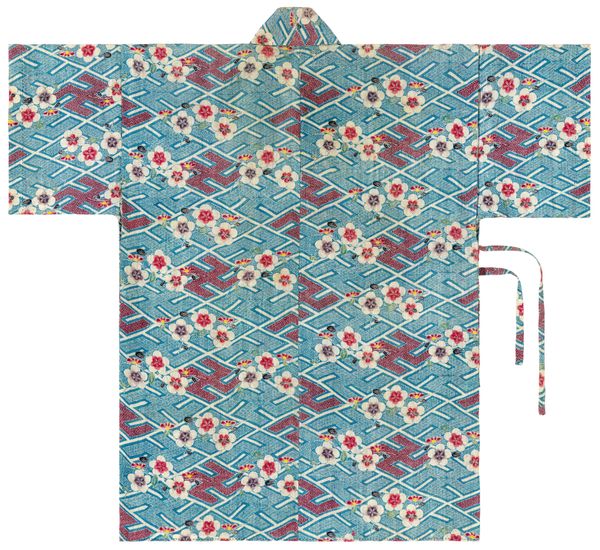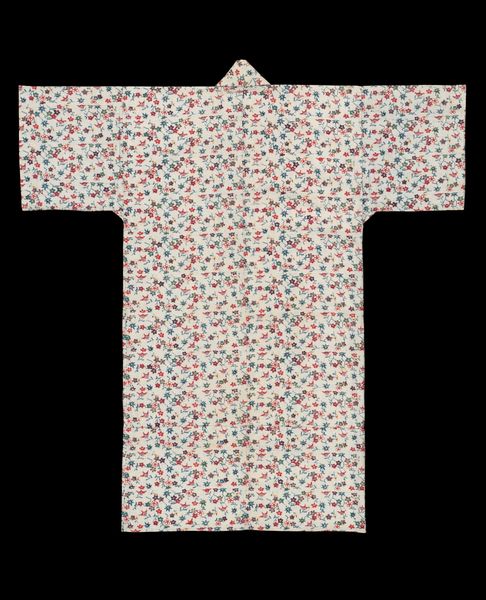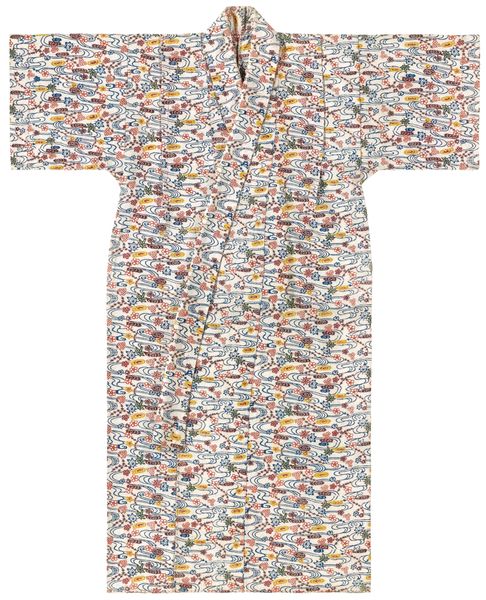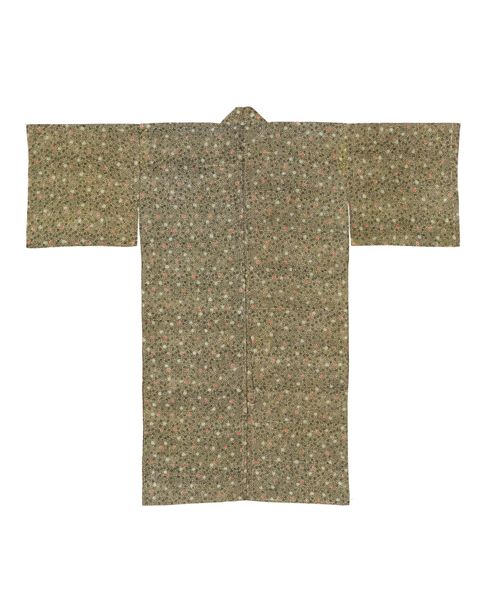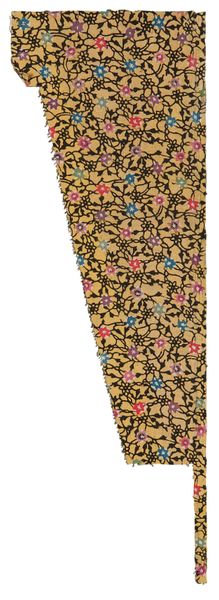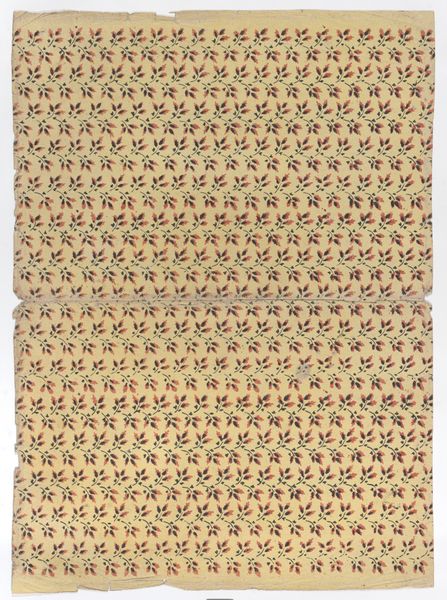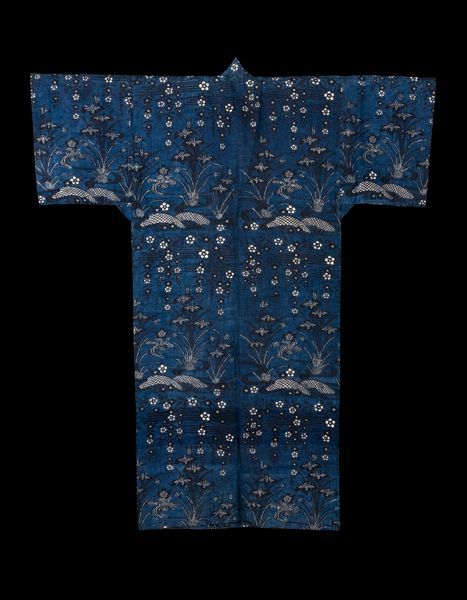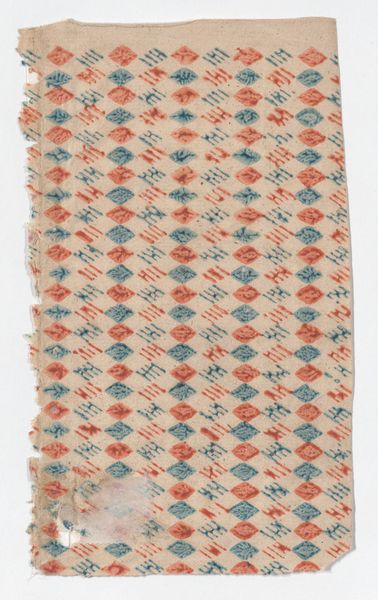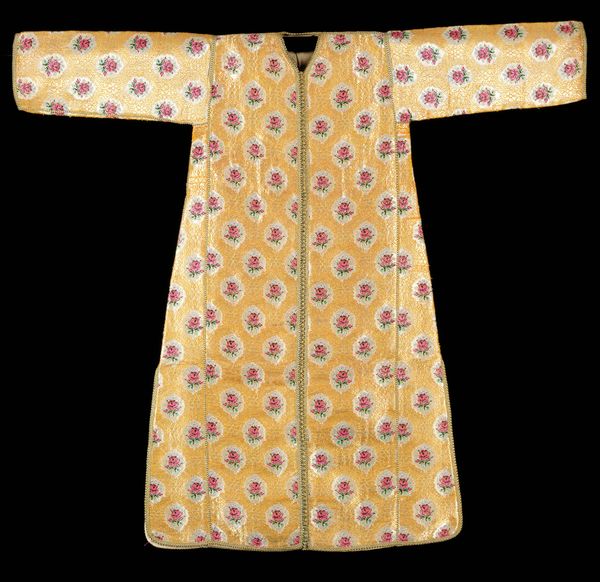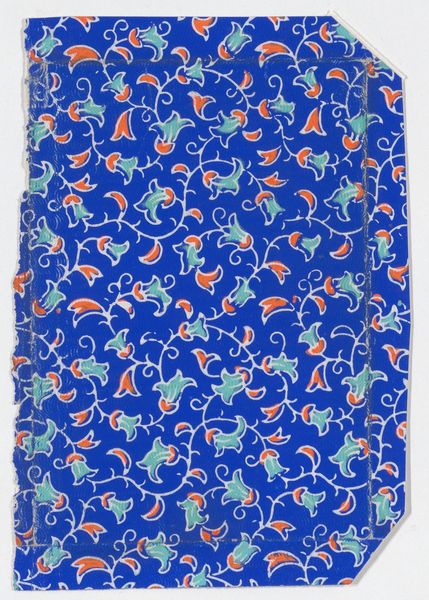
White-ground Ryūkyūan robe (ryūso) with paired cranes pattern c. mid 19th century
0:00
0:00
fibre-art, textile
#
fibre-art
#
pattern
#
asian-art
#
textile
#
ukiyo-e
#
fashion and textile design
#
japan
#
pattern design
#
repetitive shape and pattern
#
fabric design
#
repetition of pattern
#
regular pattern
#
pattern repetition
#
textile design
#
imprinted textile
#
layered pattern
Dimensions: 51 × 47 1/4 in. (129.54 × 120.02 cm) (overall)
Copyright: Public Domain
Curator: I find the piece both delicate and strangely powerful. Let's talk about this stunning White-ground Ryukyuan robe with paired cranes. It’s from the mid-19th century. Editor: There is a subtle orderliness. It projects a sense of harmonious calm; almost lulling you into peaceful contemplation. The execution of repetitive shapes and the pattern design seem integral to this effect. Curator: These robes, or ryuso, were traditionally worn by the Ryukyuan aristocracy and officials when visiting the Japanese shogunate. Each motif carries symbolism linked to power and prosperity. The paired cranes signify longevity and marital bliss, referencing diplomatic harmony and stable alliances, you see? The entire fabric is layered with social and political intent. Editor: Yes, I agree. It also produces such an exciting optical effect; it feels as though the patterned surface is moving and shifting subtly, while holding an intricate visual balance. The textile seems lightweight. I find it interesting how the layered patterns affect visual depth in a two-dimensional design. Curator: Indeed, but the white ground is equally vital; it highlights the opulence while subtly suggesting moral integrity and purity—a visual assertion of the wearer’s virtue, expected when representing one's region in a diplomatic capacity. Editor: Interesting! The color, the organization, and the texture create the impression of calm, while holding the gaze. How the maker of this textile uses symmetry and carefully modulates colors is intriguing, isn't it? Curator: Absolutely, considering these design choices had a specific cultural language linked to societal expectations for rulers and ambassadors! The wearer embodies these values, reflecting broader aspirations for Ryukyu. Editor: It is definitely thought-provoking. I am taken by how the patterning yields such dynamism, but within clear visual rules. Curator: I am intrigued by how the seemingly quiet visual language of the robe resonates with political implications for that historical period.
Comments
minneapolisinstituteofart about 2 years ago
⋮
A noblewoman likely wore this robe. Made of cotton, a costly imported fabric, it is identifiable as a ryūso (Ryūkyūan robe) by the gussets (triangular pieces of material) under the attached sleeves, the short sleeve length, and the long lapels. This garment would have been worn in the colder winter months, when temperatures dipped to the mid-50s Fahrenheit. The complex pattern of swirling water, cranes, plum blossoms, and other plants was achieved through bingata, the repeated use of a stencil through which a resist paste was applied. The paste blocked the dye from entering the fabric, and these undyed areas were later colored in by hand.
Join the conversation
Join millions of artists and users on Artera today and experience the ultimate creative platform.
